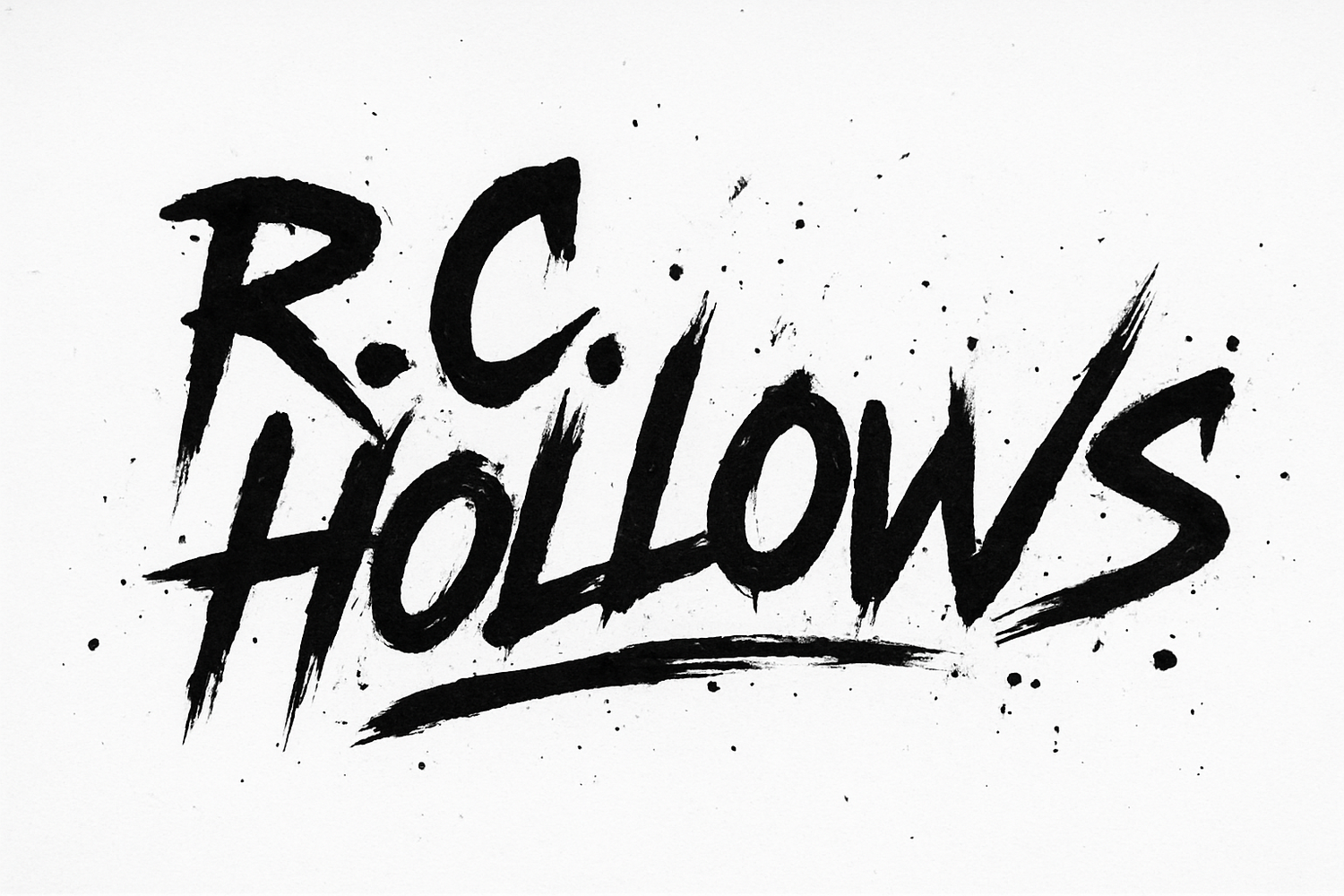Still Bracing
But the body knows—
it’s still bracing for the crash
that never comes.
I. The State
There’s something I’ve been carrying
I haven’t had the nerve to say out loud.
I live between two states—
hyper-aware of every movement,
every noise, every possible threat—
or so far gone I can’t feel my body,
hovering behind my eyes,
watching the scene unfold
from a corner of the ceiling.
One part of me shouts:
stay alert or something bad will happen.
The other:
this is too much. shut it down.
I drift between them
like a camera left running
in an empty room.
Not really present.
Not really gone.
Not safe.
Just… tense.
II. The Body
There’s a hum in my shoulders
that never shuts off.
A pressure behind the eyes
like weather building.
I pass.
I function.
But the body knows—
it’s still bracing for the crash
that never comes.
And the only time
anything lets go
is when I’m alone.
That’s the only time
the lights dim,
the sound softens,
and my body
sets the weapon down.
No tracking tone.
No mapping exits.
No bracing for a voice
that breaks my balance.
Just quiet.
Just breath.
Just me.
Stillness in a chair
that doesn’t ask questions.
III. The Want
But even that—
even that still carries grief.
Because I want closeness.
I want to hand this to someone
without losing my shape.
I want to be seen,
but not swallowed.
I want to rest,
but not disappear.
I don’t know what to do with this.
But I know what silence feels like.
And I know it’s time
I stopped pretending
I don’t.
The Smoke
No one claps for survival. No one sees the quiet part.
The fire passed.
The mirror cracked.
And I’m still here, breathing smoke.
No one claps for survival.
No one sees the quiet part.
You stop needing applause.
You stop explaining your scars.
That gut—the one that used to whisper?
Now it rings like tinnitus.
Not pain.
Just presence.
A signal you finally hear.
You hear a young man talk like he’s sure.
And you remember.
Not because you’re wiser—
just older.
You’ve seen cause
turn into consequence.
Causality’s not taught.
It’s earned.
One cut at a time.
One ripple at a time.
That’s the thing about smoke—
it lingers.
Not fire.
Just memory.
And it follows.
American Chef
doing their best Jackson Pollock in a swarm-storm of white annoyances
Pieces of ruby flesh,
crusted in crystal and spice,
caramelize in volcanic oil—
while juvenile delinquents,
hopped up on Freudian splendor,
trudge their linear focus.
They banter over last night’s foils,
dripping in three million BTUs,
grappling red-hot iron and razor-blue steel
with blistered, gnarled beaters—
doing their best Jackson Pollock
in a swarm-storm of white annoyances,
thick as Jamaican smoke.
They need rest
and bourbon dreams
of dark, drunken, back-alley sexpots—
but dread the next day’s prep list,
hanging precariously in dim-lit caverns
of stainless steel and made-up air,
carrying waves of Latino radio,
as Aztec warriors and Irish cream
blaze amid the fervor of soap and brooms,
racing to clan and cave.
Leaving me
in the unadulterated atomic power
of after-labor jitters,
seeking the sweet, angelic clink of ice glasses,
and arbitrary thoughts of happy, hungry blondes
with emerald eyes,
crawling from pub to pub,
singing toasts
to warm beds bathed in sadistic
early morning rays—
crippled in stunned vertigo visions
of tomorrow,
thinking,
in pureperfect form:
the day is done.
After the Bite
the world didn’t end—
it just stopped
waiting for you.
Companion to “Why do you need so much attention, Miss Underwood?” from her perspective.
The magic didn’t vanish.
It calcified—
hardened into amber.
You carried it,
sunlight trapped in crabapples
and stick-gun battles,
in the bellies of afternoons
too bright to remember without flinching.
After the bite,
the world didn’t end—
it just stopped
waiting for you.
The sidewalk didn’t sing anymore.
It cracked.
And weeds whispered poems
only you could still hear.
You found out
the news numbs,
the glow lies,
and loneliness
can hide behind notifications
that call you “seen.”
But still—
you held on.
To the scent of ink.
The rhythm of keys.
To touch
that asked nothing in return.
You spoke through Miss Underwood,
not to the world—
but to yourself,
so you wouldn’t disappear.
You wrote because
you remembered
Companion to “Why do you need so much attention, Miss Underwood?” from her perspective
Litany of the Line
A full-body ritual that makes you sweat—
shoulders tight, feet aching,
breath steady like a chant.
Cooking is primal.
It’s raw. It’s fire. It burns.
A full-body ritual that makes you sweat—
shoulders tight, feet aching,
breath steady like a chant.
You balance fat, acid, salt—yes, everyone knows that.
But those in the know know there is more:
the bitter,
the funk,
the rot that’s useful.
Char, burnt carbon—adds bite to sweet,
rounds the edge of acid.
You taste with your nose,
read flavor in the air like scripture.
There’s perfume in aromatics—
onions, garlic, crushed herbs—
a kind of seduction.
Cream slides like silk.
Crisp shatters.
Chewy flesh, melting fat,
collagen sticks like sin—
familiar, forbidden, and meant to stay.
We dance around fire and steam—
simmering, shimmering baths of roasted bones
and bruised vegetables.
A witch’s brew.
A monk’s sutra.
Timing, intuition,
moving through pain.
Long hours.
Holidays away from the ones we love.
All for the silence.
The god waiting in the perfect bite.
